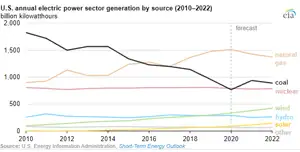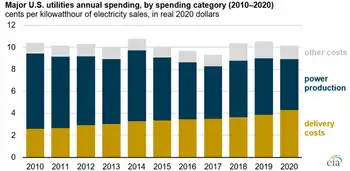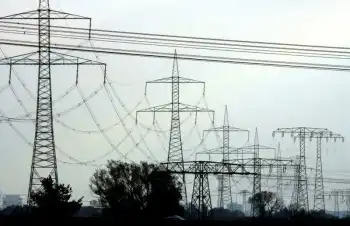Colorado Wildfire Power Shutoffs reduce ignition risk through PSPS, grid safety protocols, data-driven forecasts, and emergency coordination, protecting communities, natural resources, and infrastructure during extreme fire weather fueled by drought and climate change.
Key Points
Planned PSPS outages cut power in high-risk areas to prevent ignitions, protect residents, and boost wildfire resilience.
✅ PSPS triggered by forecasts, fuel moisture, and fire danger indices.
✅ Utilities coordinate alerts, timelines, and critical facility support.
✅ Paired with forest management, education, and rapid response.
Colorado, known for its stunning landscapes and outdoor recreation, has implemented proactive measures to reduce the risk of wildfires by strategically shutting off power in high-risk areas, similar to PG&E wildfire shutoffs implemented in California during extreme conditions. This approach, while disruptive, aims to safeguard communities, protect natural resources, and mitigate the devastating impacts of wildfires that have become increasingly prevalent in the region.
The decision to initiate power outages as a preventative measure against wildfires underscores Colorado's commitment to proactive fire management and public safety, aligning with utility disaster planning practices that strengthen grid readiness. With climate change contributing to hotter and drier conditions, the state faces heightened wildfire risks, necessitating innovative strategies to minimize ignition sources and limit fire spread.
Utility companies, in collaboration with state and local authorities, identify areas at high risk of wildfire based on factors such as weather forecasts, fuel moisture levels, and historical fire data. When conditions reach critical thresholds, planned power outages, also known as Public Safety Power Shutoffs (PSPS), are implemented to reduce the likelihood of electrical equipment sparking wildfires during periods of extreme fire danger, particularly during windstorm-driven outages that elevate ignition risks.
While power outages are a necessary precautionary measure, they can pose challenges for residents, businesses, and essential services that rely on uninterrupted electricity, as seen when a North Seattle outage affected thousands last year. To mitigate disruptions, utility companies communicate outage schedules in advance, provide updates during outages, and coordinate with emergency services to ensure the safety and well-being of affected communities.
The implementation of PSPS is part of a broader strategy to enhance wildfire resilience in Colorado. In addition to reducing ignition risks from power lines, the state invests in forest management practices, wildfire prevention education, and emergency response capabilities, including continuity planning seen in the U.S. grid COVID-19 response, to prepare for and respond to wildfires effectively.
Furthermore, Colorado's approach to wildfire prevention highlights the importance of community preparedness and collaboration, and utilities across the region adopt measures like FortisAlberta precautions to sustain critical services during emergencies. Residents are encouraged to create defensible space around their properties, develop emergency evacuation plans, and stay informed about wildfire risks and response protocols. Community engagement plays a crucial role in building resilience and fostering a collective effort to protect lives, property, and natural habitats from wildfires.
The effectiveness of Colorado's proactive measures in mitigating wildfire risks relies on a balanced approach that considers both short-term safety measures and long-term fire prevention strategies. By integrating technology, data-driven decision-making, and community partnerships, the state aims to reduce the frequency and severity of wildfires while enhancing overall resilience to wildfire impacts.
Looking ahead, Colorado continues to refine its wildfire management practices in response to evolving environmental conditions and community needs, drawing on examples of localized readiness such as PG&E winter storm preparation to inform response planning. This includes ongoing investments in fire detection and monitoring systems, research into fire behavior and prevention strategies, and collaboration with neighboring states and federal agencies to coordinate wildfire response efforts.
In conclusion, Colorado's decision to implement power outages as a preventative measure against wildfires demonstrates proactive leadership in wildfire risk reduction and public safety. By prioritizing early intervention and community engagement, the state strives to safeguard vulnerable areas, minimize the impact of wildfires, and foster resilience in the face of increasing wildfire threats. As Colorado continues to innovate and adapt its wildfire management strategies, its efforts serve as a model for other regions grappling with the challenges posed by climate change and wildfire risks.
Related News












